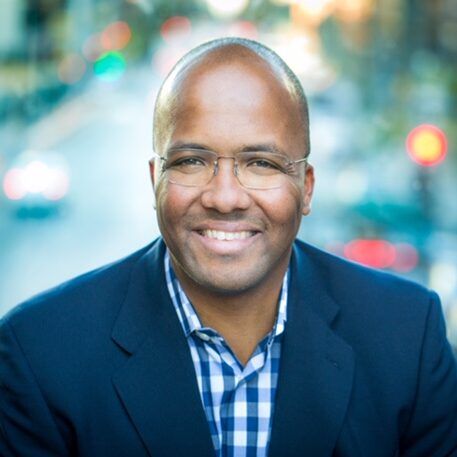New Broadband Benefits Require Federal Agency Cooperation to Close Digital Divide
Trooper Sanders / Jan 6, 2022Trooper Sanders is CEO of Benefits Data Trust,
The new Affordable Connectivity Program– part of the Infrastructure Investment and Jobs Act passed by Congress in November– provides a historic opportunity to connect millions of Americans who have been left out of the internet’s transformation of 21st century life. The program’s $14.2 billion investment also enables us to realize the potential of a more fully connected society to improve people’s health, education and employment opportunities. Yet we are years away from claiming victory. While billions will be spent building out the physical infrastructure needed for broadband deployment and adoption, the physical availability of broadband does not by itself ensure equitable access. To create real change at scale, it is imperative that government agencies work together to leverage data from existing government programs so that low-income Americans can quickly and easily access the new broadband benefit.
We know from experience that funding alone isn’t enough to advance digital equity. In 1996, $2 billion was promised to place a computer connected to the Internet in every public school classroom. Champions celebrated the computer as “the great equalizer” and the internet as something that didn’t distinguish between rich and poor. But 25 years and a pandemic later, COVID-19 brought a bright light to the deep digital divide in education as students were suddenly forced into online learning, many without computers and access to reliable high-speed internet connections. Low-income families also experienced the financial and social consequences of lacking digital access to connect to doctors, jobs, employment training, and more.
Right now, we have the means through the Affordable Connectivity Program to connect millions of households to reliable, high-speed internet, and reshape our economy and society. It is encouraging that the program will be built on the administrative infrastructure of Lifeline phone service assistance and the Emergency Broadband Benefit. Yet, by one estimate, as many as 30 million households are eligible for but not receiving assistance to pay for broadband access.
Benefits Data Trust has worked with state and local governments for over 15 years to help low-income families connect to the benefit programs for which they are eligible, and to help governments find ways to make these connections easier. We have seen firsthand the barriers people face – from required in-person interviews during common workday hours to requiring the same information and documentation be provided over and over again - as they navigate complex and siloed pathways to help. These barriers are part of why before the COVID-19 pandemic, over $60 billion in government benefits went unclaimed each year by eligible families.
What may be surprising is that many of those missing out on this assistance are already participating in another program, such as SNAP, Medicaid, or the Special Supplemental Nutrition Program for Women, Infants, and Children (WIC). Most of the families, seniors, veterans and children our nonprofit helps are identified by matching the participant list of one program to another. In 2020 alone, Benefits Data Trust helped secure nearly $170 million in assistance for 61,000 households, and helped dozens of government agencies explore and implement policy and practice changes to cut red tape and streamline benefits access for millions of people nationwide.
Yet in working closely with government agencies throughout the years, we have also observed that although individual benefit programs are often administered by the same agency and even accessed through the same application process, people who sign up for one program often don’t know they can sign up for another. Money and help go untapped, and the full potential to save and improve lives is unrealized.
With the Affordable Connectivity Program, we have a chance and a responsibility to create a more human-centered and efficient experience for low-income households.
Trooper Sanders
With the Affordable Connectivity Program, we have a chance and a responsibility to create a more human-centered and efficient experience for low-income households. Under the program, people participating in SNAP, Medicaid or certain other assistance programs, as well as students receiving Pell Grants, are automatically income eligible for the broadband benefit. Beginning next month, key federal agencies – Departments of Health and Human Services, Agriculture, and Education – are required to share data to speed enrollments, and to notify those families receiving qualifying benefits that they can receive the program’s $30 a month to help pay for broadband.
It is critical for federal and state agencies to maximize efforts ensuring eligible households are aware of the broadband benefit and how to apply, including sharing data to identify individuals connected to benefit programs but not yet receiving the broadband assistance. The agencies should also prioritize using this data to conduct direct outreach to these households. Doing so will enable more low-income families to better participate in our increasingly digital society. For example, it will help financially struggling students take classes remotely; and expand opportunities for low-income adults on Medicaid or Medicare to get help through telehealth, and in turn help drive down the cost of care.
Today we have the opportunity and the ability to break through the silos and administrative barriers that lead families in need to miss out on billions of dollars in assistance each year, that generate inefficiencies increasing costs to taxpayers, and that keep us from realizing digital, health, economic, and other forms of equity. We have the chance to forge a new and better path together. Let’s make the most of it.
Authors
